
The Sveriges Riksbank prize in economic sciences, established by the Sveriges Riksbank (Sweden’s central bank) in 1968 in memory of Alfred Nobel is perhaps the most prestigious award given to path-changing work done in multiple streams. The Nobel prize in Economics has helped highlight seminal work in macro-economics, financial markets, management and developmental economics.
The 2022 Sveriges Riksbank Prize in economic sciences was awarded jointly to Ben S. Bernake, Douglas W. Diamond and Philip H Dybvig for their research on banks and financial crisis. The prize amount in 2022 is 10 million Swedish Kronor per full prize, which will be split among the laureates.
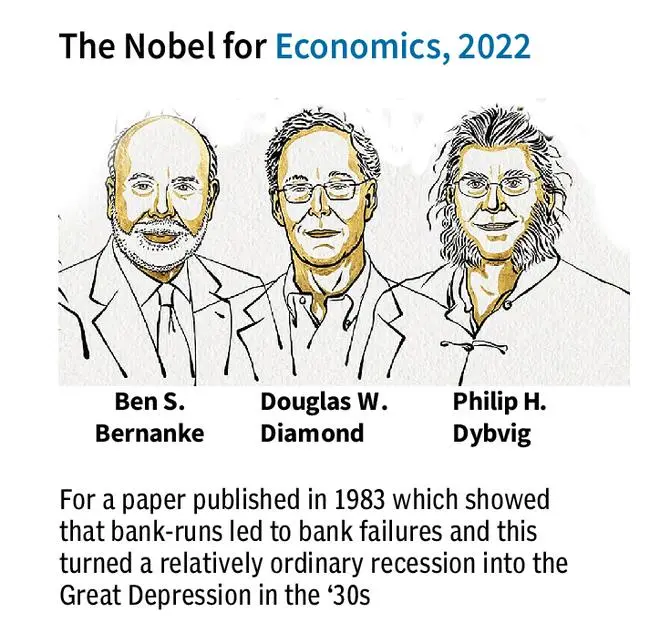
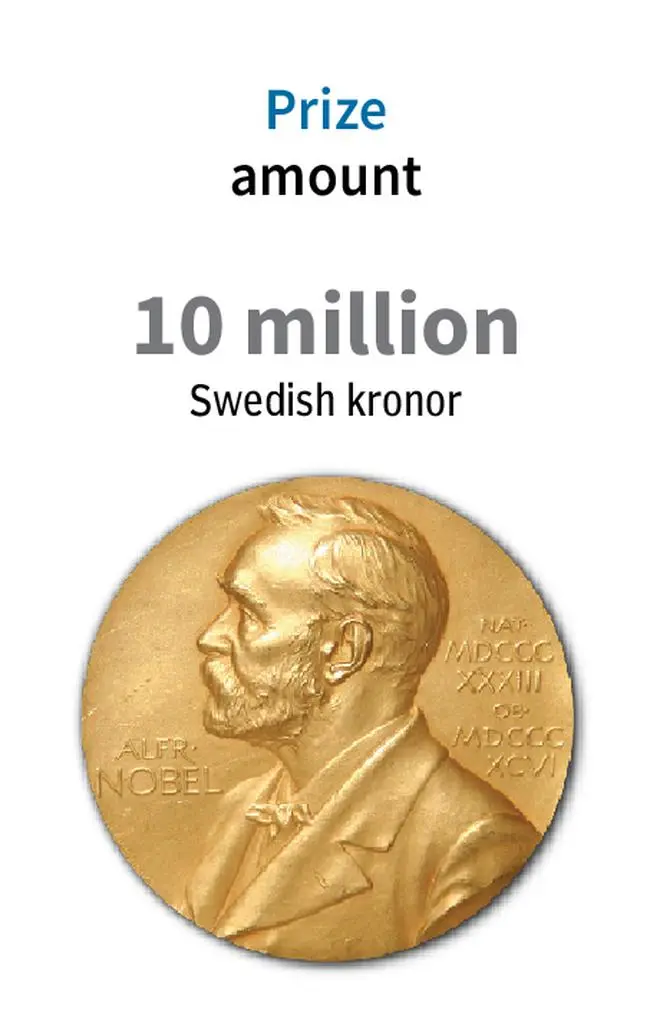
Since the inception of the Nobel prize, between 1901 and 2022, 989 individuals have received the Nobel prizes, out of which 92 laureates have been awarded the economic sciences prize.
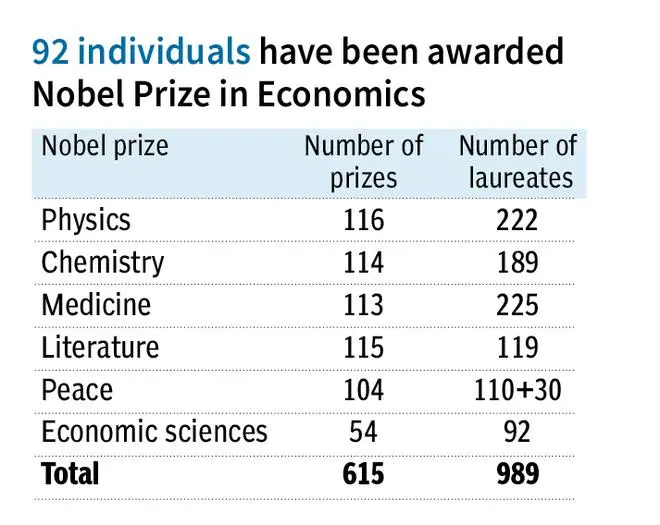
Out of the 92 economic sciences laureates, only two women have been awarded since inception. The prize for the first female economic sciences laureate was awarded in 2009 to Elinor Ostrom for her analysis for economic governance, especially the commons. The second award after a decade in 2019 to Esther Duflo.
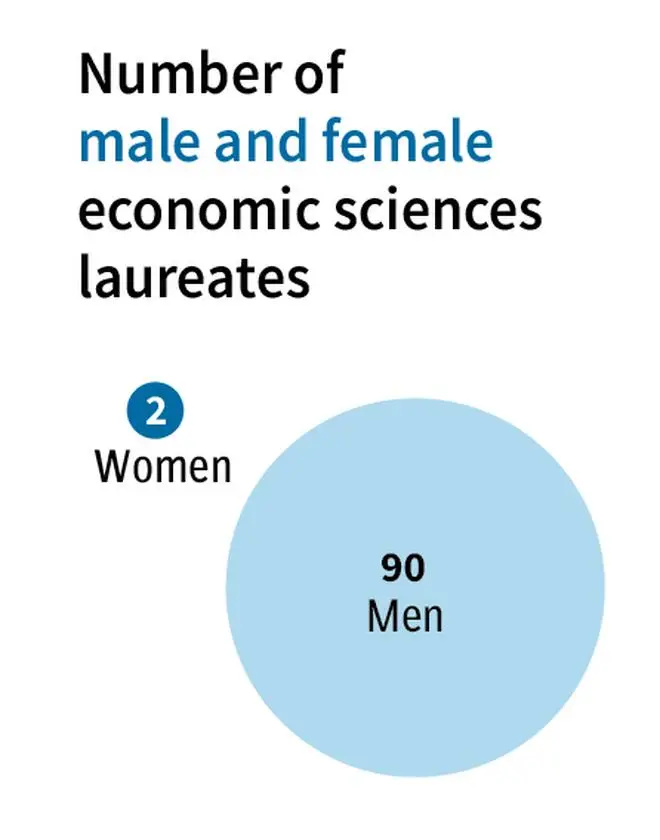
The youngest economic sciences laureate is Esther Duflo. She received the prize for the experimental approach to alleviating global poverty at age 46 in 2019.
Leonid Hurwicz is the oldest economic science laureate who received the award for having laid the foundations of mechanism design theory aged 90 in the year of 2007.
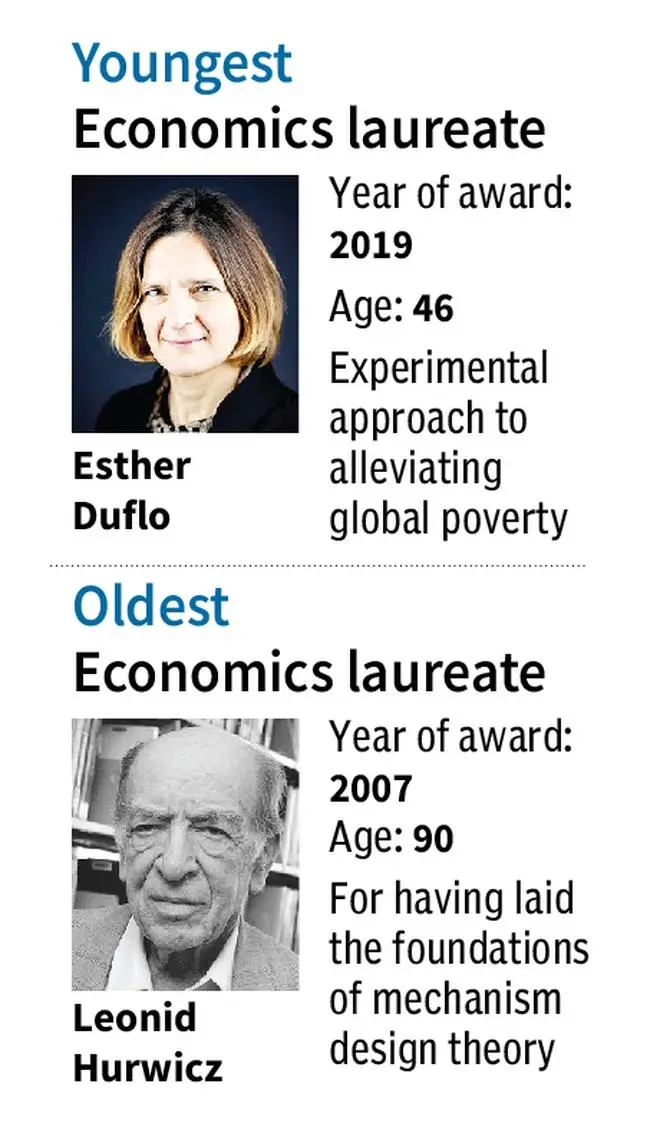
Few important economic Nobels were Robert Merton and Myron Scholes for their Black-Scholes theorem, a new method to determine the value of derivatives.
John C. Harsanyi, John F. Nash Jr., and Reinhard Selten pioneered the analysis of equilibria in the theory of non-cooperative games.
Daniel Kahneman was awarded in 2002 for his psychological research into human judgment and decision-making under uncertainiy.
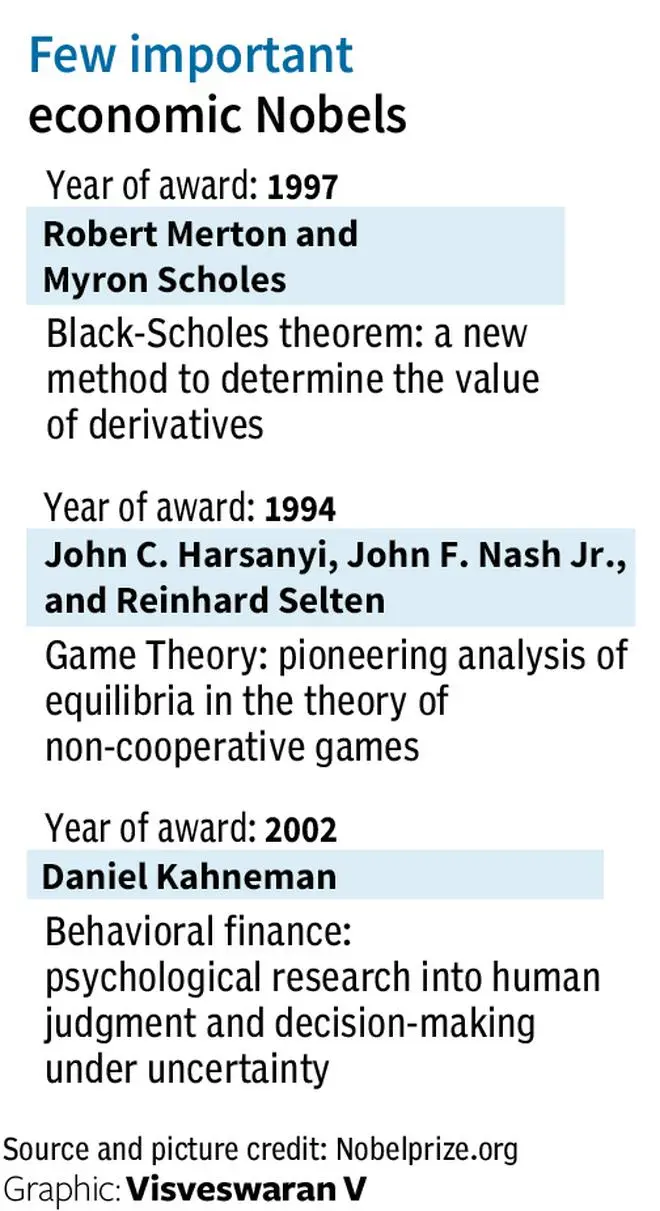
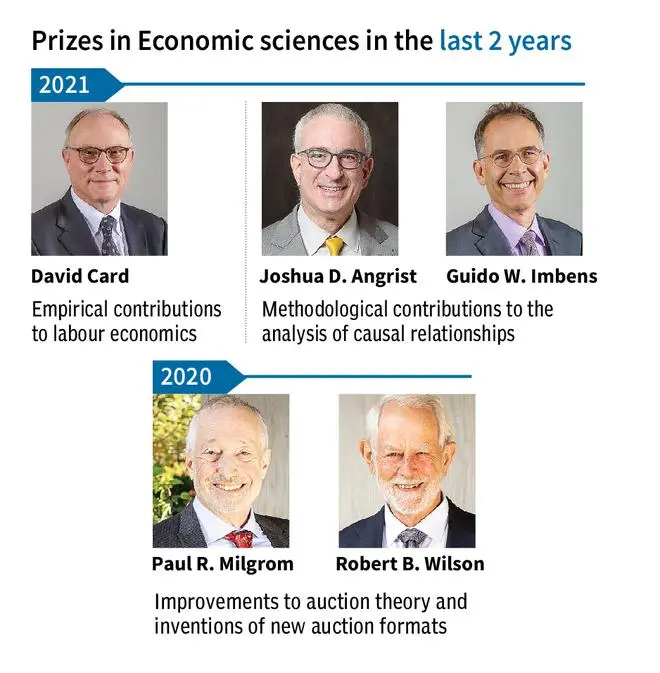
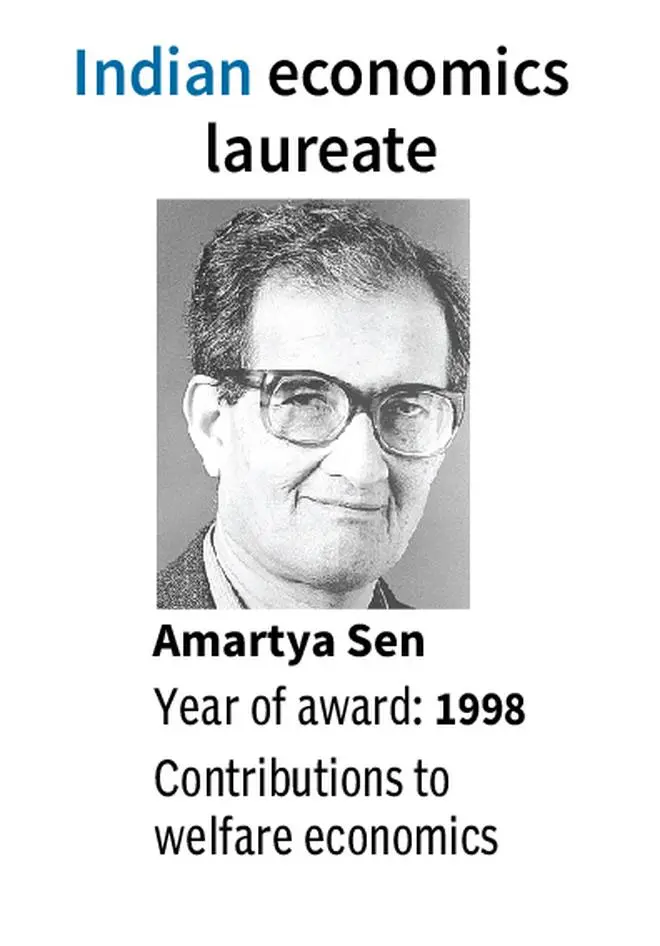
Published on October 13, 2022

Comments
Comments have to be in English, and in full sentences. They cannot be abusive or personal. Please abide by our community guidelines for posting your comments.
We have migrated to a new commenting platform. If you are already a registered user of TheHindu Businessline and logged in, you may continue to engage with our articles. If you do not have an account please register and login to post comments. Users can access their older comments by logging into their accounts on Vuukle.